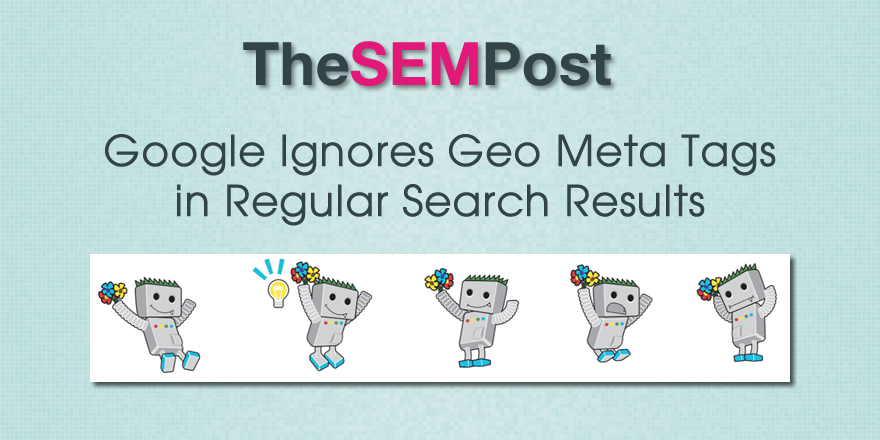 Geo meta tags are a meta tag that many SEOs are unfamiliar with, unless they work in local SEO or with sites with a multiple geolocations. But does Google use those meta tags, especially in leui of better signals, such as hreflag?
Geo meta tags are a meta tag that many SEOs are unfamiliar with, unless they work in local SEO or with sites with a multiple geolocations. But does Google use those meta tags, especially in leui of better signals, such as hreflag?
The meta tags in question, are the geo location meta tags:
- <meta name=”geo.position” content=”latitude; longitude”>
- <meta name=”geo.placename” content=”Place”>
- <meta name=”geo.region” content=”Country”>
According to John Mueller from Google, Google does not use these geo meta tags for search at all.
We don't use geo meta tags at all for search, probably never have. Use hreflang + normal geotargeting.
— John ☆.o(≧▽≦)o.☆ (@JohnMu) August 9, 2017
There is some speculation that it might possibly be used for Google local search optimization, which falls outside of regular organic search SEO. And some SEOs simply add it for a “cover all bases” approach to optimization. And other search engines may also use the geo meta tags, even if Google does not. So it isn’t uncommon to come across the geo meta tags on some sites.
Google also states in their support docs that they do not use geo meta tags either.
Google does not use locational meta tags (like
geo.positionordistribution) or HTML attributes for geotargeting.
And Mueller also confirmed this back in 2009 in the help forums, as well as gave a more specific reason as to why Google ignores them – because they find them to be wrong.
We generally ignore geo-meta tags like that because we’ve found that they’re generally incorrect (copy & pasted from a template, etc).
There is also a very old video (2009, which predates hreflang as the preferred geo signal for Google SEO) from Matt Cutts on the geo meta tag issue, where he states that Google tends to look at other signals for determining geo-location.
Bottom line, if you need to use geotargeting for your site, use signals such as hreflang and ccTLDs instead of the geo metatags. But if you are in the local space, or earn traffic from other search engines, it
Jennifer Slegg
Latest posts by Jennifer Slegg (see all)
- 2022 Update for Google Quality Rater Guidelines – Big YMYL Updates - August 1, 2022
- Google Quality Rater Guidelines: The Low Quality 2021 Update - October 19, 2021
- Rethinking Affiliate Sites With Google’s Product Review Update - April 23, 2021
- New Google Quality Rater Guidelines, Update Adds Emphasis on Needs Met - October 16, 2020
- Google Updates Experiment Statistics for Quality Raters - October 6, 2020